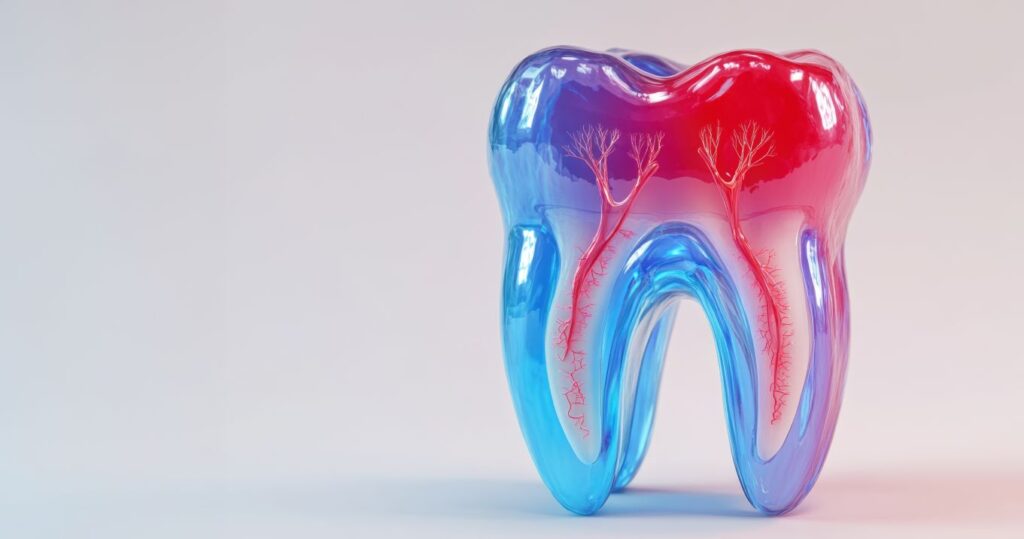
There’s nothing wrong with being a little sensitive. It can help you be a better friend, parent, and member of society. But when it comes to your smile, sensitivity could be a sign of trouble. In addition to making it harder to enjoy hot or cold foods, tooth sensitivity can often mean that there is trouble lurking in your mouth!
Here are a few common causes of tooth sensitivity, and when it’s time to see your emergency dentist.
What Causes Tooth Sensitivity?
There are many things that could cause sensitive teeth, from your diet to problems with your oral health. There are even certain foods that can trigger sensitivity, such as anything cold, hot, or acidic, such as citrus, coffee, or sodas.
If your teeth are free of any problems such as cavities or infection, the sensitivity you experience while eating should be temporary, and can typically be prevented with the addition of a sensitive toothpaste. These contain extra minerals to help rebuild your tooth enamel, making it more difficult for hot, cold, or acidic foods to reach the dentin of the tooth and cause a painful reaction.
Teeth Whitening
Another common cause of temporary tooth sensitivity is teeth whitening products. This type of reaction can occur with both professional or over the counter treatments, as their active ingredients can strip away some of the minerals in your teeth along with the stains and discoloration. Most of the time this sensitivity clears up on its own within a few days of treatment, however you can often speed up the healing process by switching to a sensitive toothpaste for a few days. Please also note that sensitivity following professional whitening treatments tends to end much faster than it does with OTC treatments because most patients need to use OTC products a lot longer to get the same results.
Oral Health Issues
Unfortunately, sometimes tooth sensitivity is an indicator of a more serious problem. Often, patients may experience it as a symptom of receding gums, gum disease, cavities, tooth infection, or a broken tooth. In these cases, it is best to be seen by your dentist as soon as possible, especially if your sensitivity does not go away shortly after eating or using sensitive toothpaste.
Preventing Sensitive Teeth
While chances are you will experience tooth sensitivity at some point whether serious or not, you can easily reduce your risk by following these steps:
- Brush your teeth twice daily; floss once daily.
- Use sensitive toothpaste.
- Use a soft-bristled toothbrush.
- Avoid consuming highly acidic foods and drinks.
- Avoid consuming excessively hot or cold foods and drinks.
- Visit your dentist twice a year for your biannual exam and cleaning appointments.
- Visit your emergency dentist as soon as possible if you notice any unexplained sensitivity, or sensitivity that does not go away.
Other Signs to See Your Dentist
In addition to tooth sensitivity, if you are experiencing any of the following, schedule an emergency appointment with your dentist:
- Bleeding tooth
- Throbbing toothache
- Tooth pain
- Swelling of the gums or face
- Loose teeth
- A broken tooth
- A fever that lasts more than 24 hours
Remember, while it’s not uncommon to experience occasional tooth sensitivity, if yours does not go away or is combined with any other symptoms, seek help from your emergency dentist as soon as possible.
About Our Practice
At Healthy Smiles Dental Care of Muskegon, our name says it all. Our team of highly skilled, compassionate dentists wants to help you, and your family have a healthy, beautiful smile! If you are suffering from unexpected or lingering tooth sensitivity that makes it difficult to enjoy the foods you love, don’t suffer needlessly. Schedule an urgent appointment today by calling us directly at 231-563-6878.
